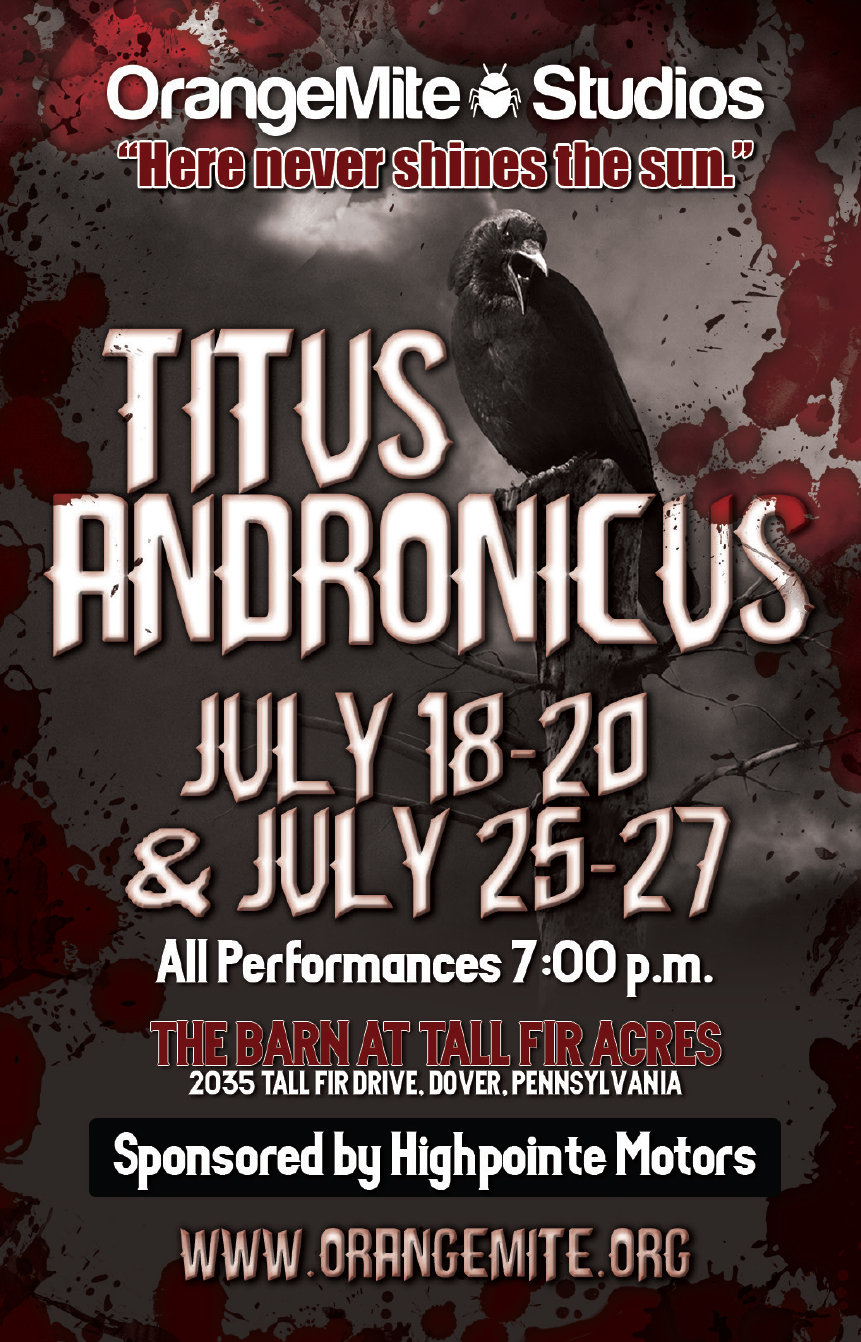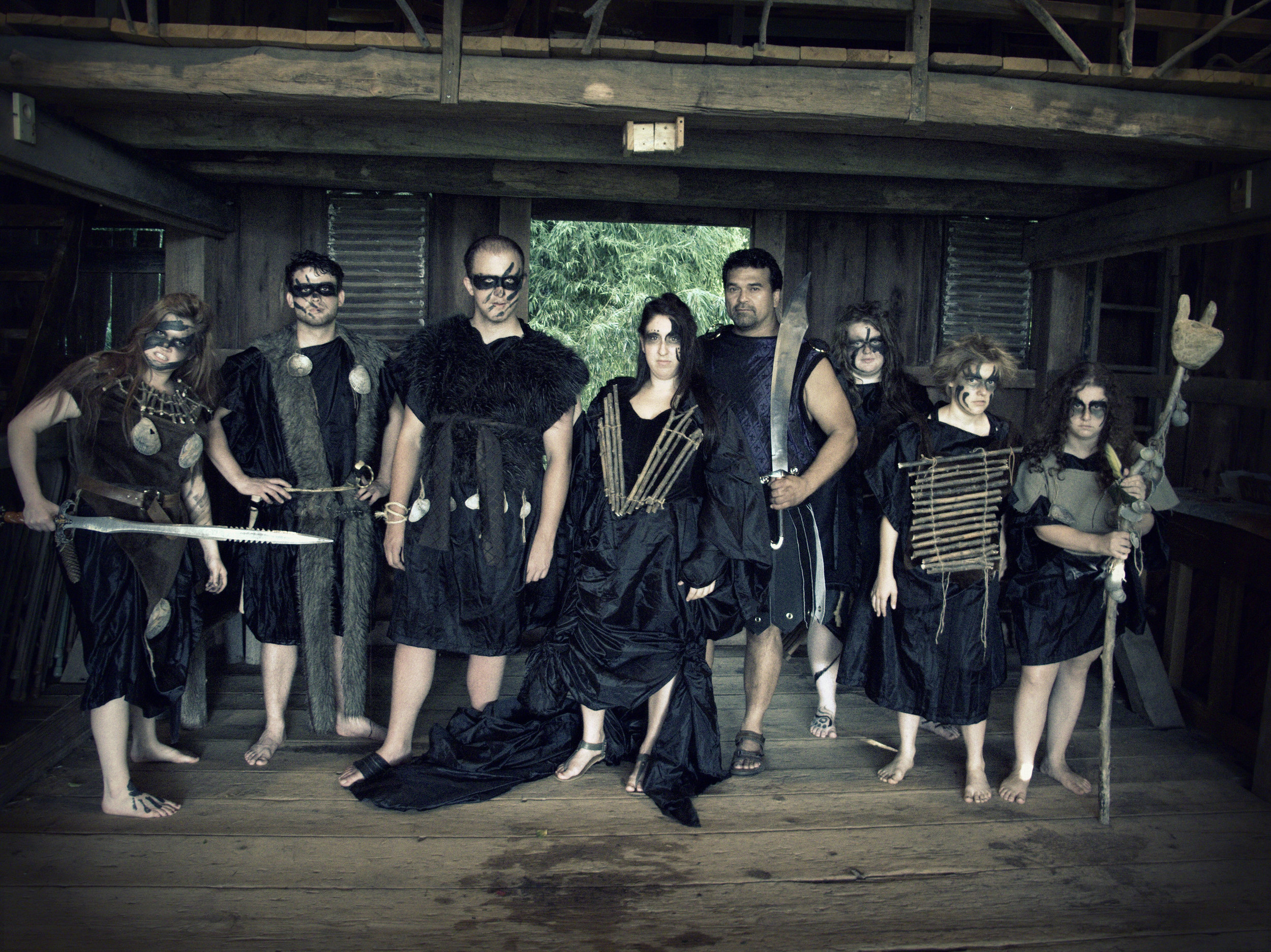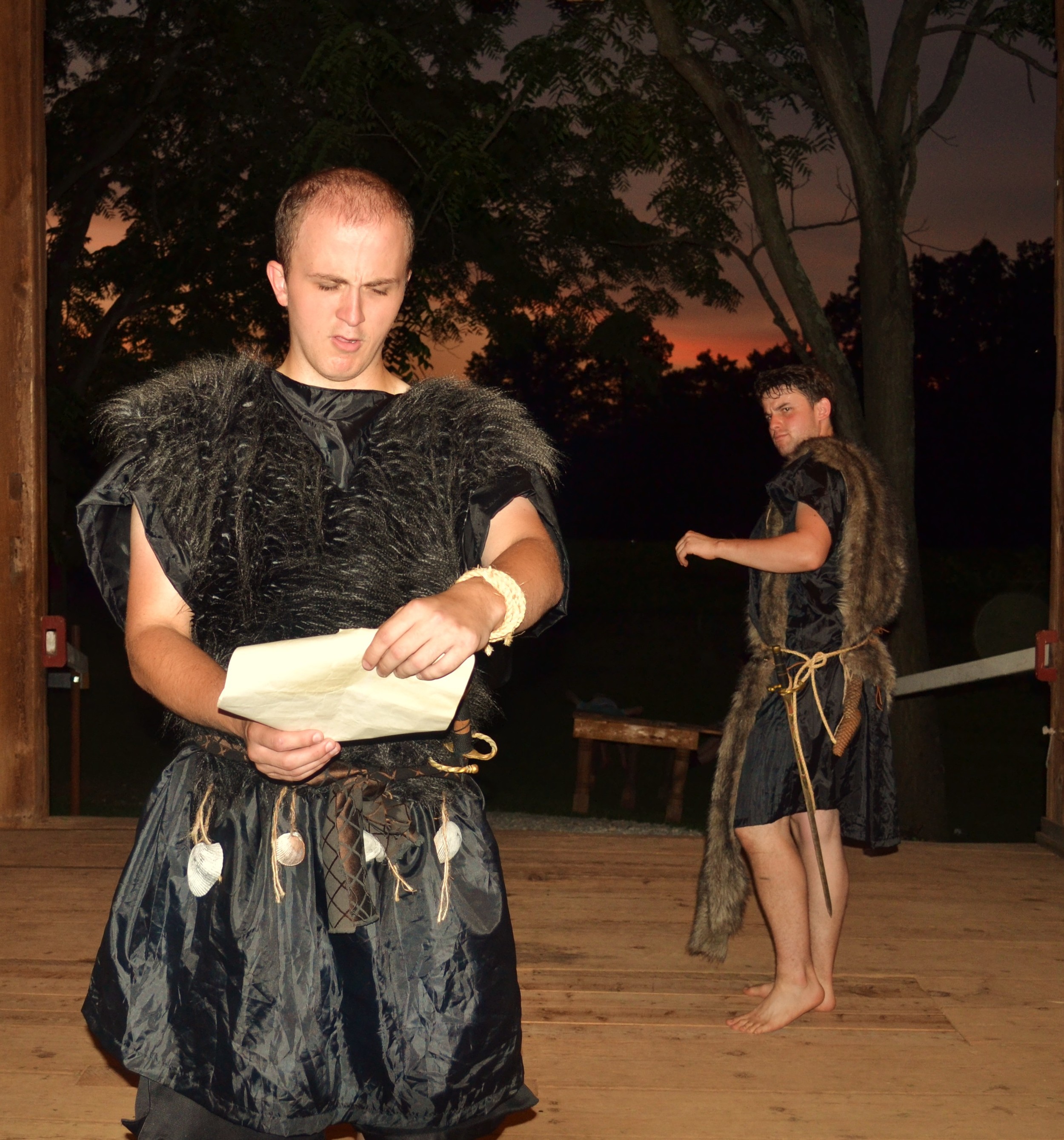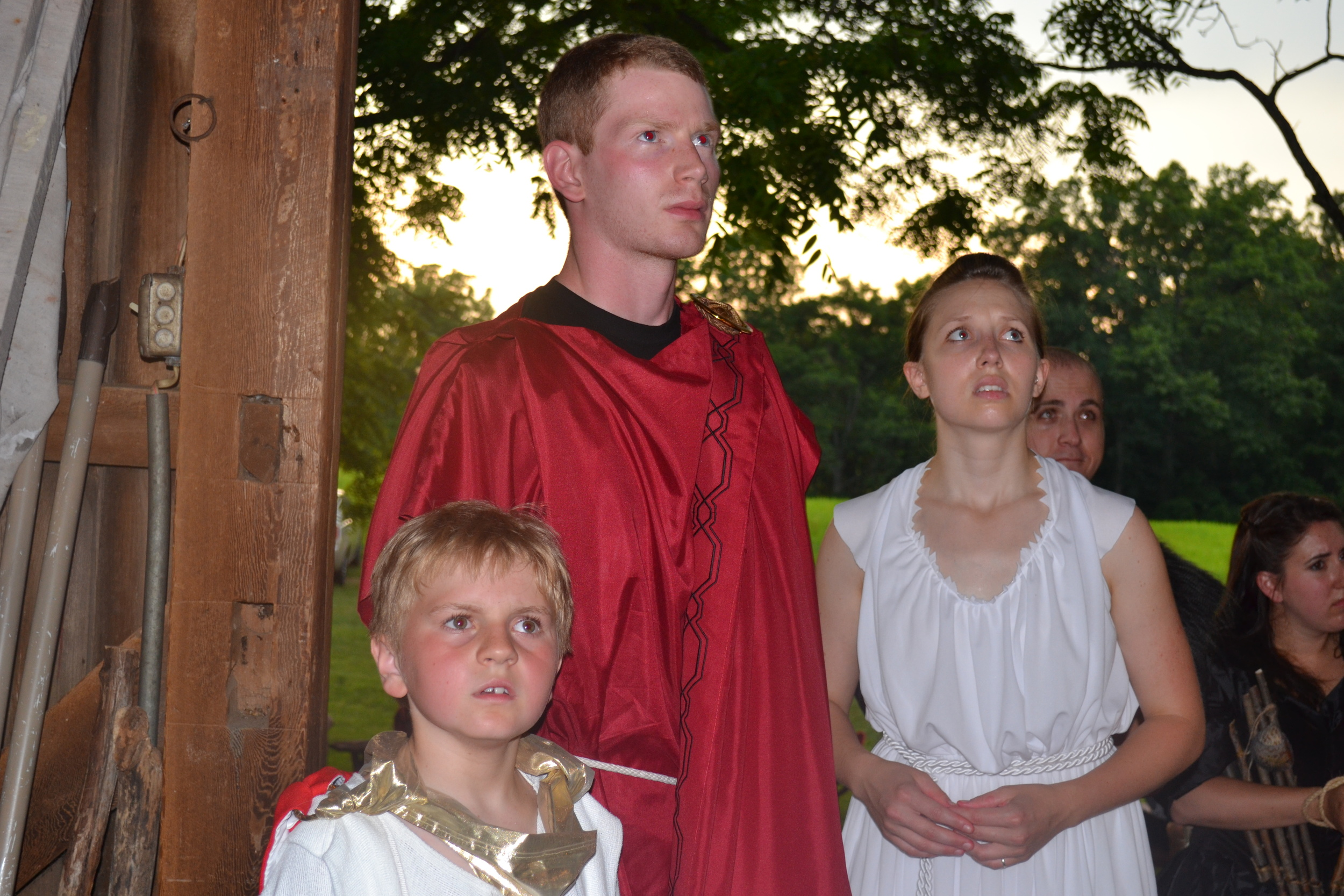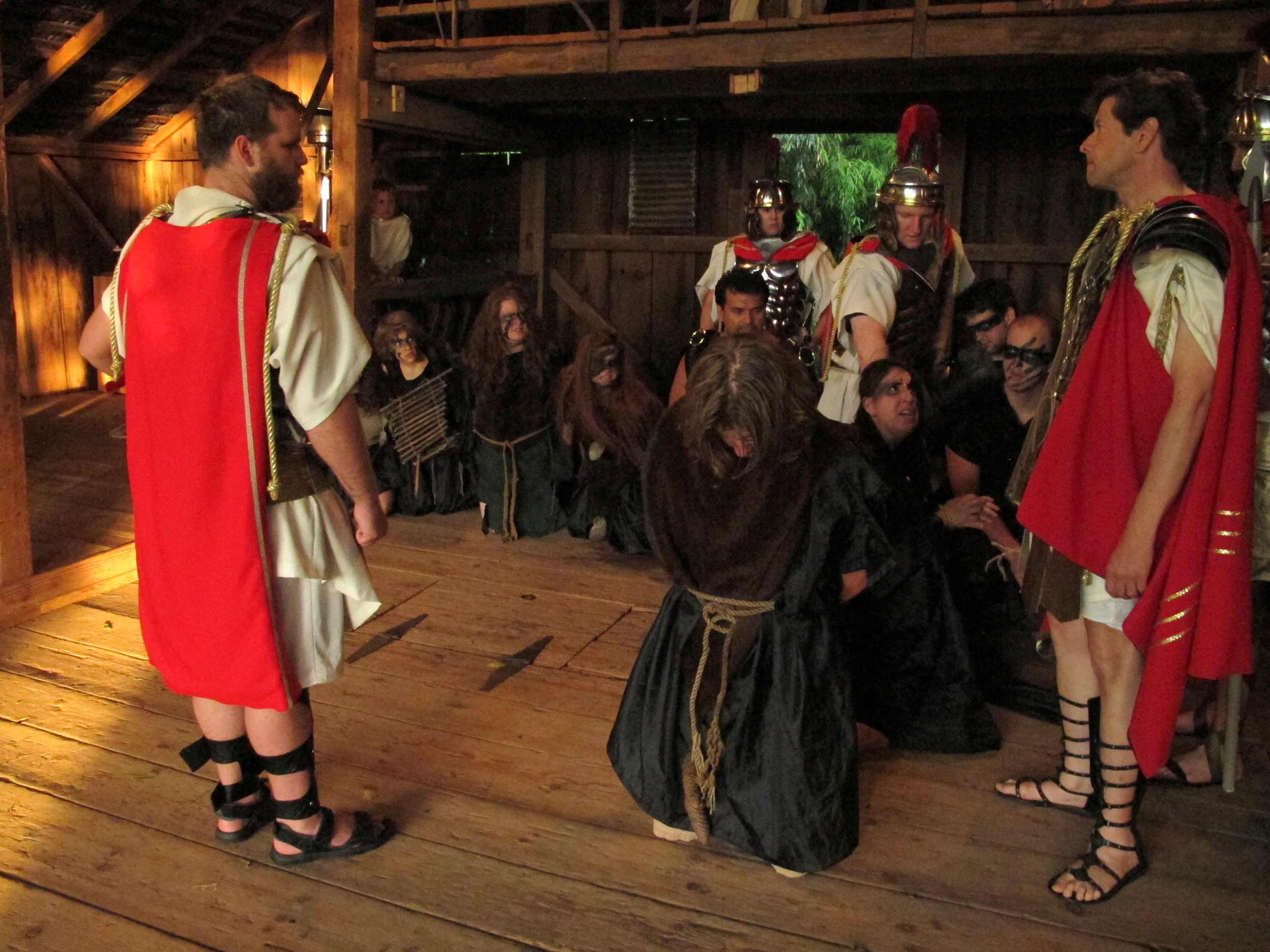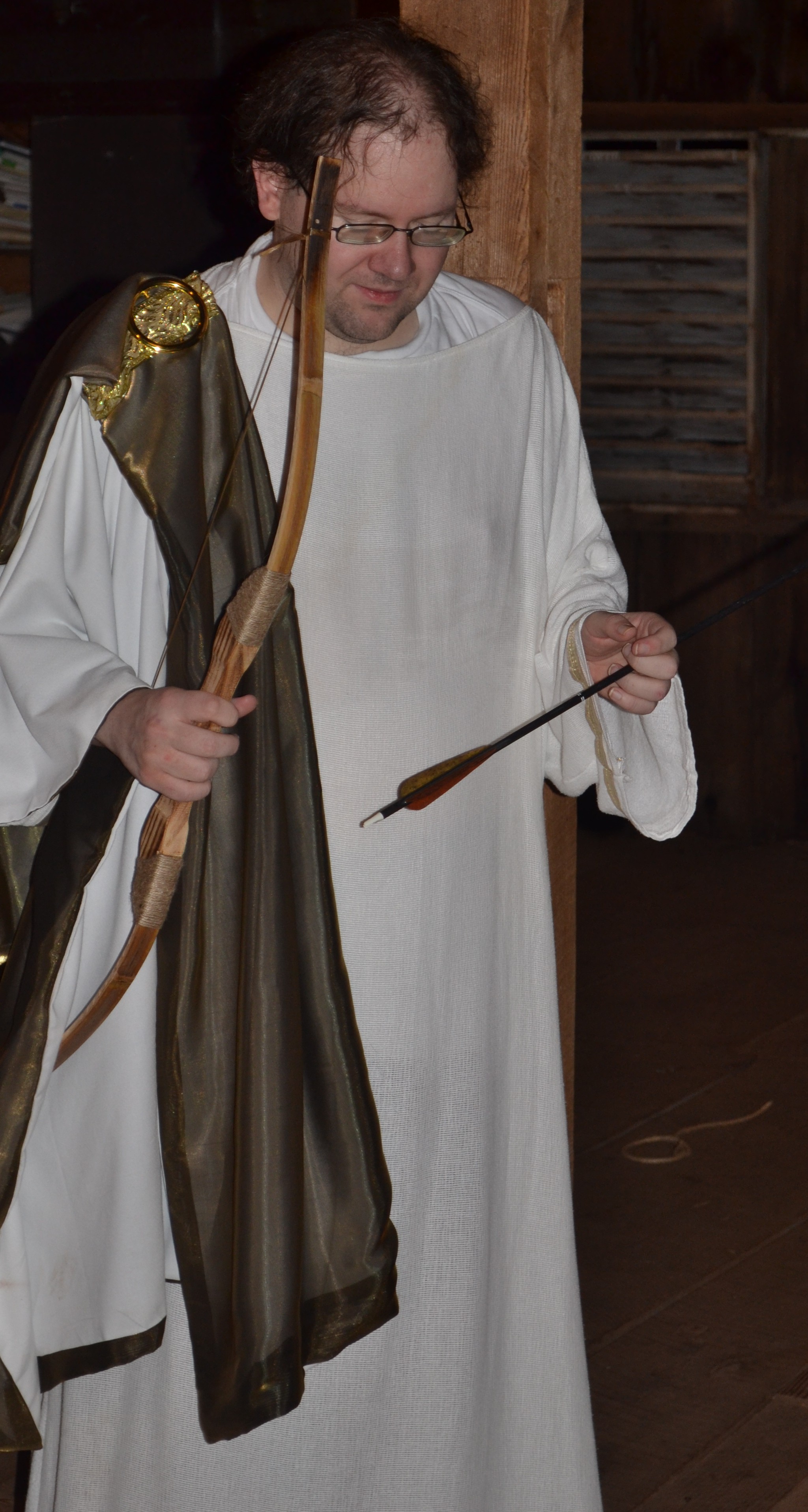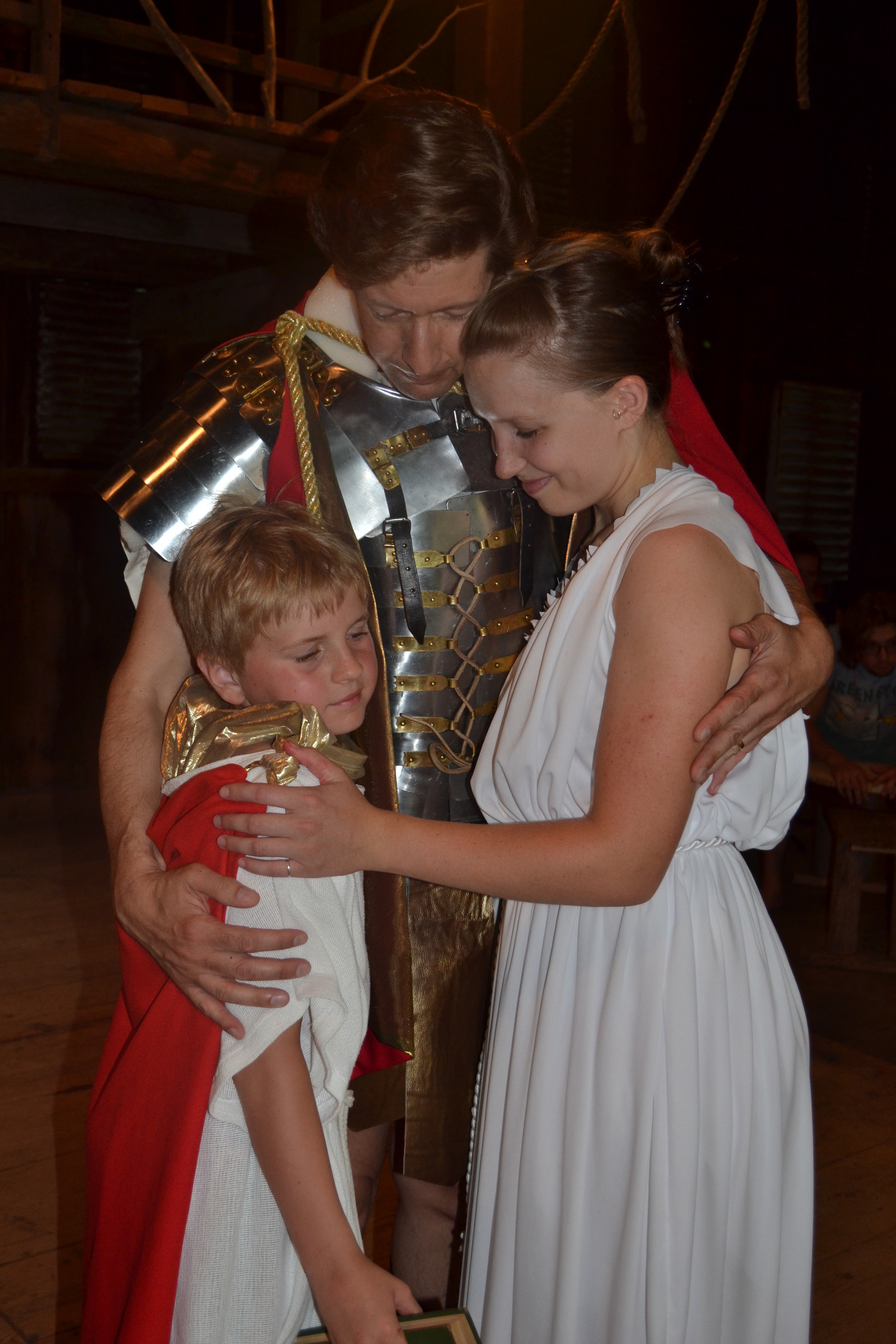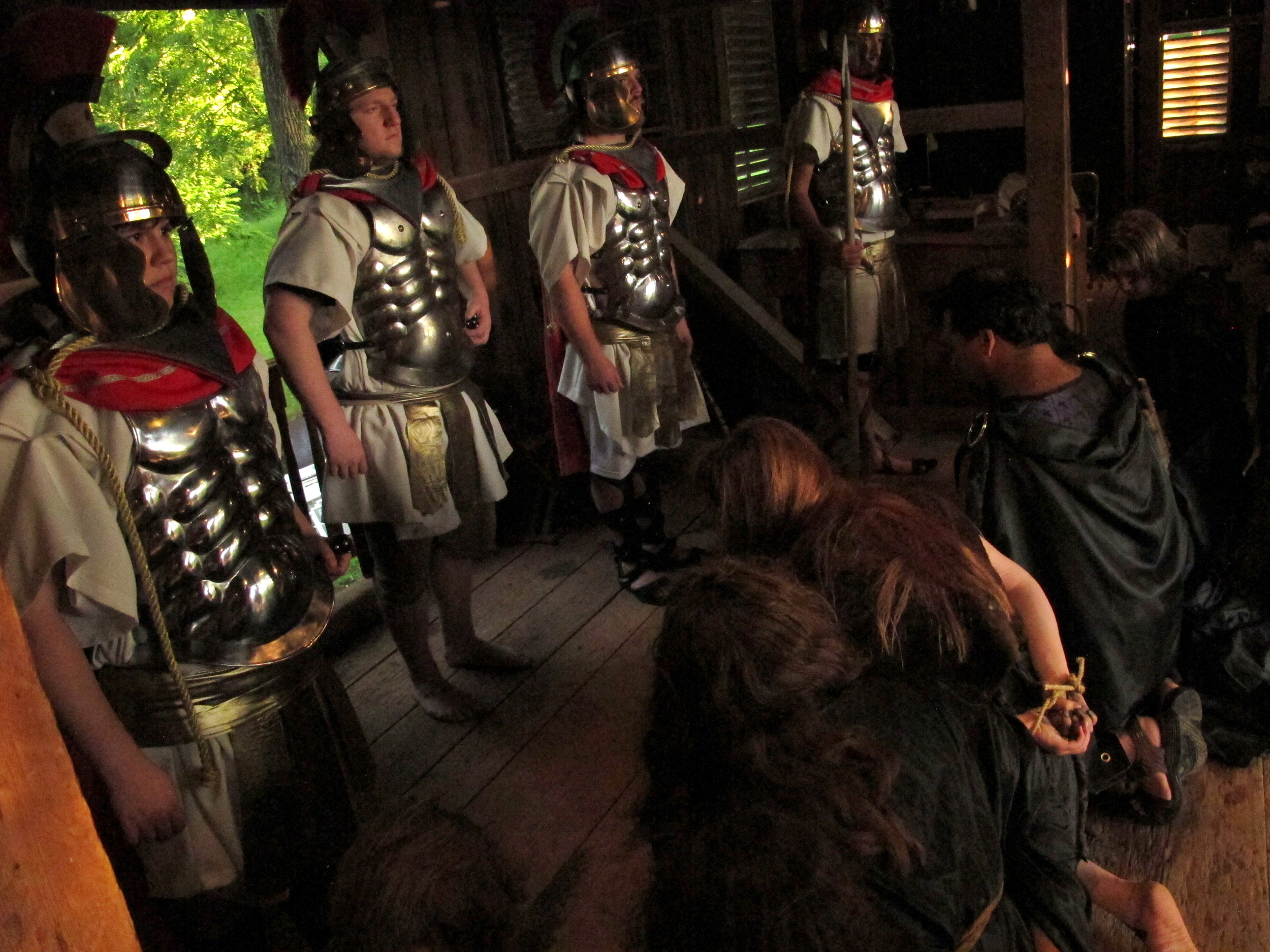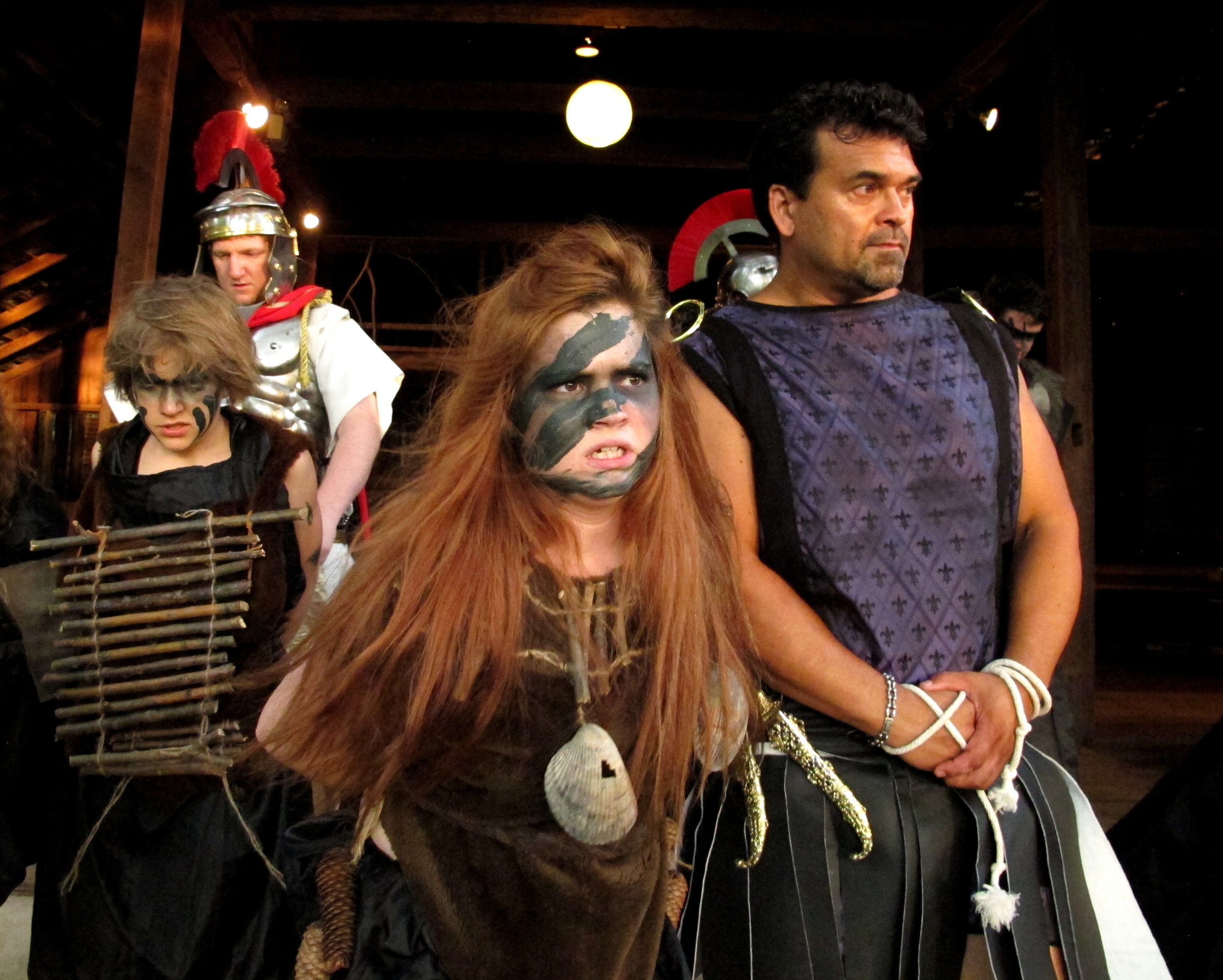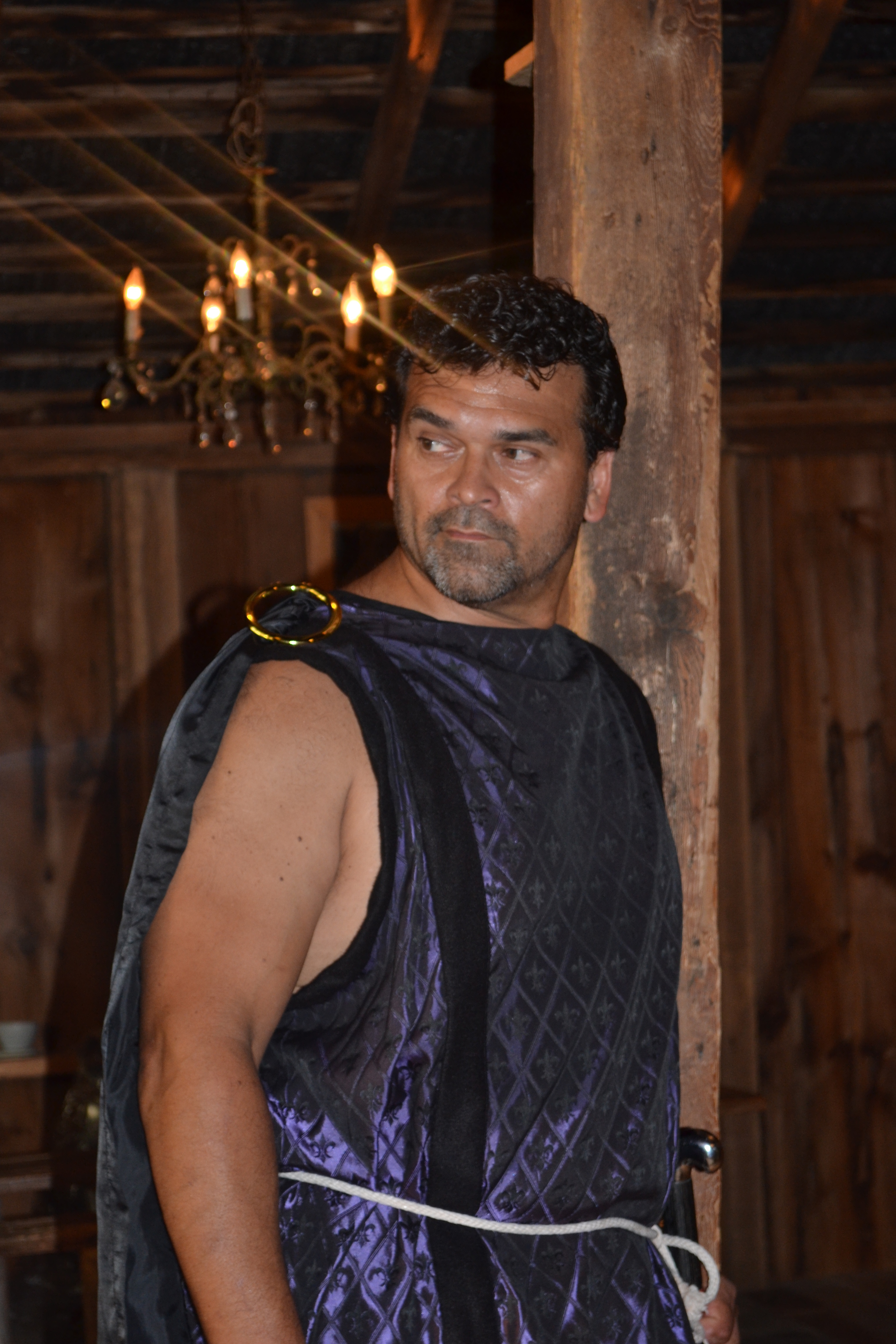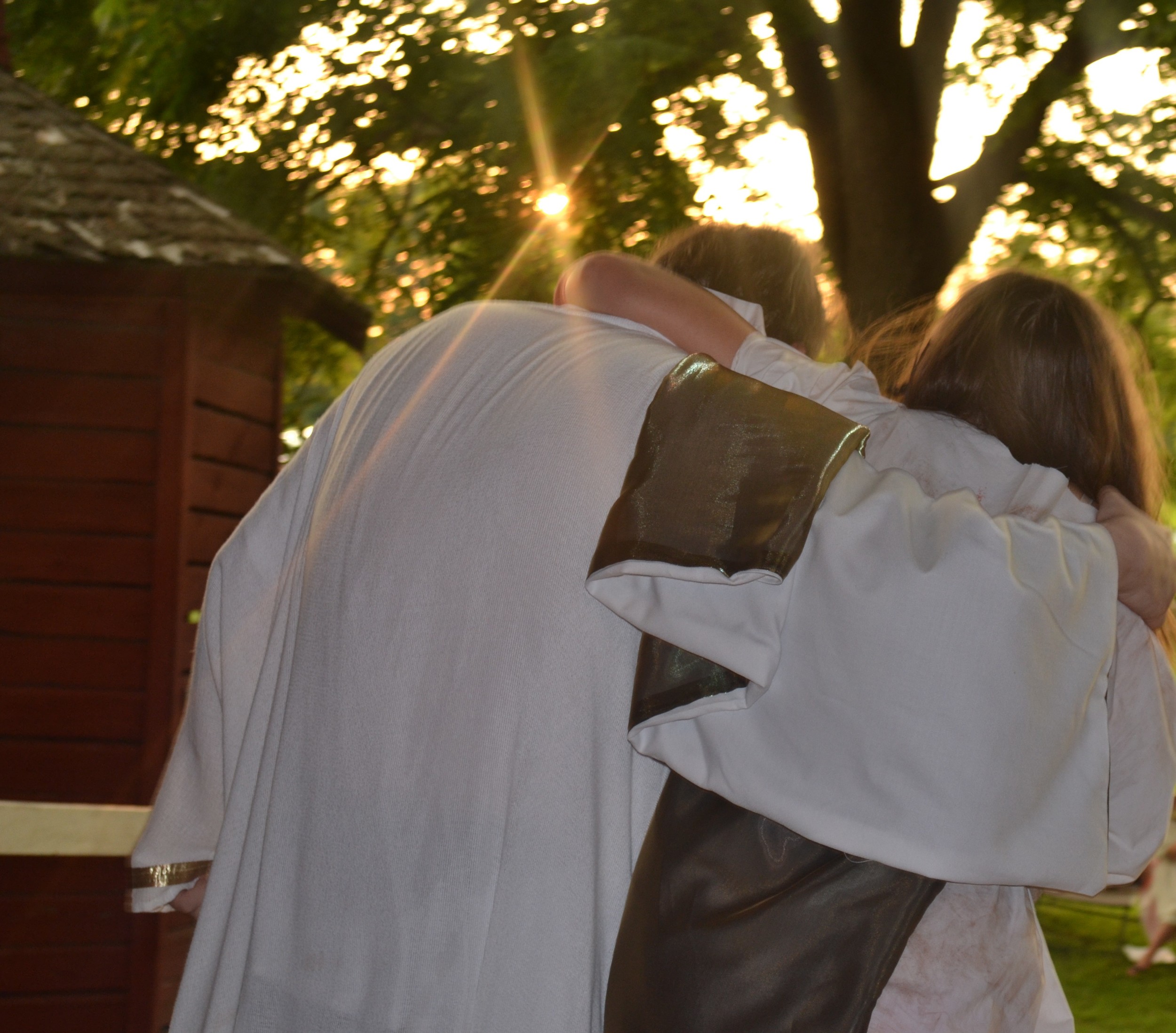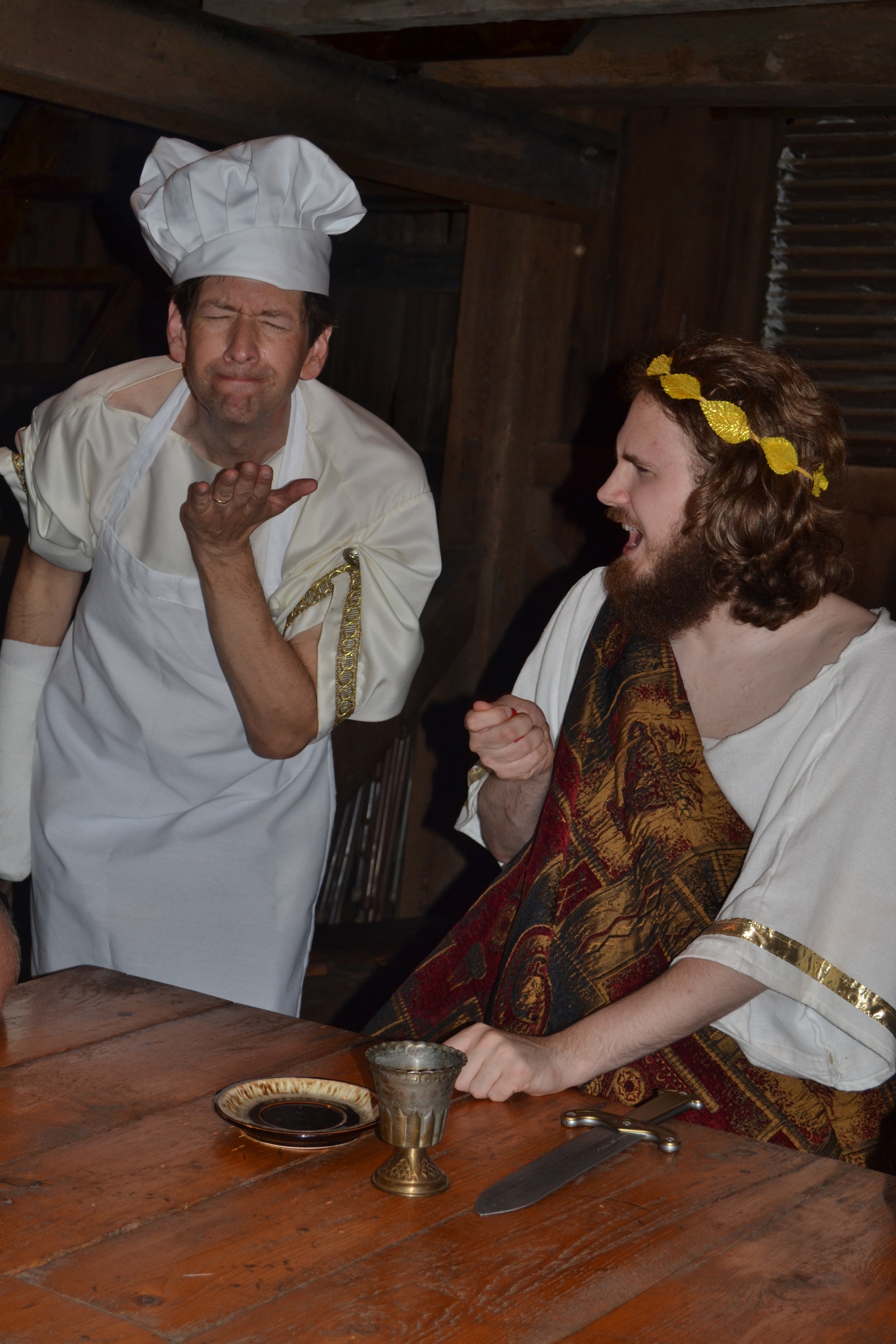TITUS ANDRONICUS
JULY 2014, DIRECTED BY WILLIAM WOLFGANG
“Hark, villains! I will grind your bones to dust.”
When the renowned general, Titus Andronicus, returns home from years of defending the Roman Empire from the martial Goths, he sets in motion a deadly chain of events culminating in a tragedy of epic, culinary proportions.
“When will this fearful slumber have an end?”
Immediately as we enter the quasi-historical world of Titus Andronicus, we are forced to face a disturbing reality: war. However, this play is not about war, nor is it about the politics of war, as the play’s exposition may suggest. Shakespeare wrote this early revenge tragedy to satisfy the tastes of the 16th century Elizabethans. The play lived up to Shakespeare’s design, becoming a well-received crowd-pleaser that helped launch his career. He framed this play with war, but we never see a battle; it is only the brutal catalyst for this tale and looms over all of the action.
Why are the Romans and Goths at war? As with all war, it is evident that one side doesn’t like the other. Shakespeare juxtaposes the two civilizations clearly: Rome, the world’s greatest civilization, and the Goths, a nation of vicious Barbarians. He paints a vivid portrait of the Romans’ perceived superiority over the Goths and Aaron the Moor. Shakespeare soon inverts this pretext as Rome descends into chaos led by the floundering Romans themselves. The world's greatest civilization is now blinded by the same insatiable human need to carry out “eye for an eye, tooth for a tooth.”
The Goths are captured by the Roman Army led by Titus Andronicus.
The Goths: Rebecca Schrom as the Commander, Ryan Szwaja as Chiron, Collins Wilson as Demetrius, Leann Hart as Tamora, Jack Ledger as Aaron the Moor, Danielle Laughead as the Nurse, Annie Kurz and Rowan Minney as Goth Soldiers.
The above line, which Titus utters in one of the play’s darkest moments, is the central question of Titus Andronicus. The cycle must be broken, but it seems as if every character in this play is only interested in achieving the temporary relief of transferring their extreme suffering to others. With the absence of a character to stop this grisly cycle, will an “eye for an eye…leave the whole world blind?” Shakespeare asks that question too; but, he doesn’t answer it. That very point is what makes all of Shakespeare’s work timeless and invigorating. He never gives us the answer. Instead, Shakespeare makes the actor, director, scholar, and audience search and answer every question he poses: the surface and deeply visceral questions.
During our seven weeks of preparation, we had the opportunity to craft our answers to these difficult questions. We have enjoyed scouring the text, cautiously laughing at his dark humor, portraying villains, memorizing pages of verse and prose, and most of all, wearing Roman armor. We present our discoveries to you this evening, as Shakespeare may have envisioned, complete with Rome as a backdrop. This terrifyingly real story repeats itself in all corners of the globe, always told differently, presented so we can ask ourselves questions.
The Goth Nurse portrayed by Danielle Laughead.
This story is uncomfortable, unbelievable, embarrassing, outrageous, and ridiculous, but yet completely real. Violence is a cycle, hate is a cycle, and today we see it manifested in wars and racial violence. Too few stand up to stop it, while many perpetuate it. Shakespeare’s play is tragically human.
William Wolfgang, Artistic Director


